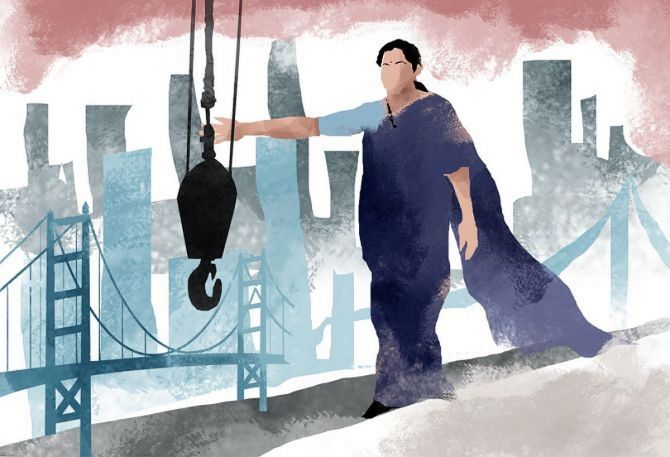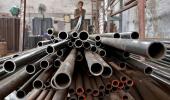Developers grappling with labour shortage and getting construction material to sites could be among a list of problems.

The 2021-22 Budget banks on a big infrastructure push, but the deadly second wave of Covid-19 cases may lead to a downward rerating of many projects due to delays and other issues.
Developers face shortages and logistical problems with getting labour and construction material to sites.
There could be bottlenecks caused by drops in steel and cement production, due to oxygen shortage.
Financing could also be a problem as the vast government borrowing programme sucks resources out of the bond market.
Even before the second wave reached its April peaks, many projects faced delays.
In March, the MOSPI reported that, out of 1,749 projects (each worth over Rs 150 crore), 449 had cost over-runs and 547 were delayed.
The cost overruns for 449 projects was estimated at about Rs 4.3 trillion, on a revised total cost of Rs 26.6 trillion.
Out of the 547 delayed projects, 109 projects have delays in the range of 1-12 months, 132 projects of (13-24 months), 187 projects (25-60 months) and 119 projects delays of above 61 months.
The average time overrun in these 547 projects is 44.59 months or almost 4 years.
In a separate report in March 2021, a Parliamentary panel asked the Ministry of Road Transport and Highways to prioritise completion of 888 delayed road projects, for the construction of 27,665 km of national Highways.
Matters got worse in April as the second wave intensified.
Any infra project involves large construction components.
Hence, these are labour intensive, and cost-intensive.
Construction also generates steel and cement demand.
The industry is, by far, the biggest customer for steel and cement, as well as the largest employer outside of agriculture.
Every one of those variables has been badly affected.
Steel production for example, needs large quantities of industrial oxygen, which is now diverted for medical purposes.
Captive oxygen production capacity at most steel plants is now being diverted to medical supply.
It’s likely there will be production cutbacks.
Of course, demand for steel (and cement) is dependent on construction activity.
So, given project delays, demand will drop.
It’s impossible to make predictions about how long oxygen shortages will last, or to match new reduced demand/reduced supply equations for other materials.
But project delays are likely to increase, and the infra traffic jam will negatively affect upstream industries.
The Nifty Infrastructure Index tracks 30 listed companies.
This includes developers and cement producers, but not steel makers.
The Infra Index is down 4.76 per cent in the past 30 days.
The Nifty Metals Index is up 13.4 per cent in the same period.
There’s been a strong bull run in steel stocks over six months.
The above adverse developments may trigger downward re-ratings in these sectors.











